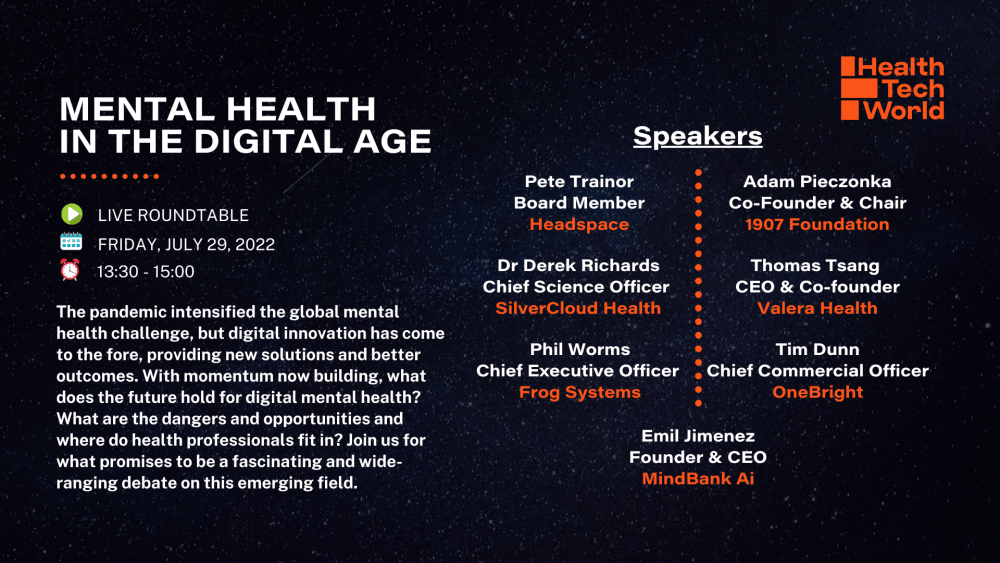
The existing mental health crisis in the UK is expected to soar to a whole new level, with estimations that 10 million people will seek support in the next three-to-five years.
The Centre for Mental Health and partners reports that mental health services in England will need additional capacity for 8.5 million adults and 1.5 million children and young people as a consequence of the pandemic.
Mental health patients are already being forced to wait for months while the services struggle to cope with demand.
The BMA’s Mental health workforce report states that workforce shortages in mental healthcare are affecting staff workload, wellbeing, morale and their ability to provide good quality of care. It also reports that recruitment into psychiatric specialties is a key challenge and many psychiatric specialties face under-recruitment year on year.
Is AI the future for mental health?
Sebastiaan de Vries, CTO and Founder, Limbic told Health Tech World that, while AI “may not be the silver bullet to resolve specialist shortages”, it is capable of alleviating the challenges practitioners face on a daily basis.
He said: “Demand for mental health services has surged in recent years, with factors such as the pandemic and now the rising cost of living being cited as leading causes for people seeking care.
“Limbic Access and Limbic Care are actively helping to alleviate the pressures in the self-referral process, and supporting patients waiting for treatment. Working with Insight IAPT in the Wirral region for example, Limbic has helped to create approximately 243 clinical hours and save 45 admin hours in the past three months alone.”
 “By freeing up this time, clinicians were able to spend vital time treating patients, reducing the time spent on intensive admin tasks.”
“By freeing up this time, clinicians were able to spend vital time treating patients, reducing the time spent on intensive admin tasks.”
Sebastiaan also pointed out that, while there are clear benefits to the use of artificial intelligence in mental health therapy, technology is best placed to augment, and improve the practice of clinicians – not replace them.
He continued: “The development and advancement of AI technology is growing at an alarming pace, but in relative terms, is still very much in its infancy.
“Task automation and machine learning are already helping to drive significant improvements across industries, but the ability to understand and perceive complex human emotions – skills required for effective psychological therapy – is still yet to be seen.”
Tech to take the reigns
The idea of artificial intelligence can still raise concerns to patients and healthcare professionals, and the idea of trustworthiness is a frequently discussed topic.
Sebastiaan concluded: “Whether a chatbot helping to optimise a shopping experience, smart facial recognition, or even assisted health diagnosis – AI technology is helping to improve people’s lives daily.
“The reason why we can trust AI more primarily comes down to its overall application. While several years ago, the application of AI was very much in its discovery phase, we are now regularly seeing successful applications of the technology across a plethora of industries – including financial services, agriculture, healthcare, e-commerce and manufacturing. As a result, it is anticipated that the UK economy could grow approximately 10.3% by 2030 solely due to the AI sector.
AI therapist trained to give cognitive behavioural therapy

As previously reported by Health Tech World, AI “therapists” trained to empathise and pick up on suicide ideation are being developed to fill the gaps in mental health services.
They are set to take the strain off services by offering support for anxiety, depression and trauma.






